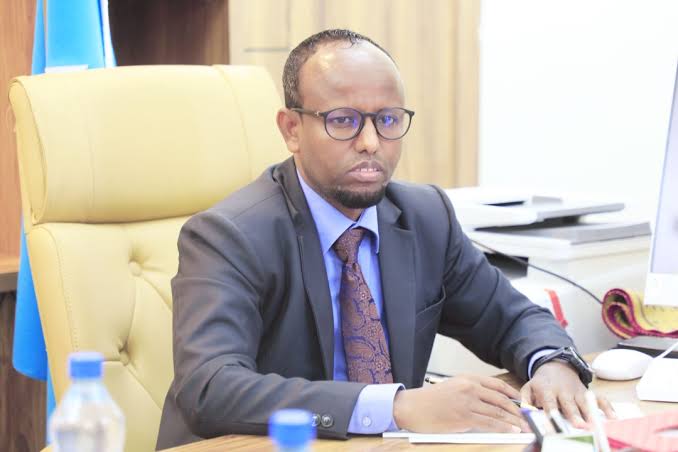Facebook Twitter Instagram Somali Magazine - People's Magazine
The Somali government has launched a nationwide campaign to address the growing burden of cancer in the country, marking a major step in its commitment to public health and non-communicable disease prevention. This initiative aims to improve awareness, early detection, and treatment options for various types of cancer affecting the Somali population.
The campaign was inaugurated at a high-profile event in Mogadishu, attended by government officials, including Health Minister Dr. Ali Haji Adam, lawmakers, and representatives from international health organizations such as the World Health Organization (WHO). Medical experts and healthcare professionals also participated, emphasizing the urgency of addressing cancer as a public health crisis.
During the event, the Ministry of Health’s Non-Communicable Diseases (NCD) Program provided a comprehensive assessment of the current state of cancer in Somalia. Experts highlighted the increasing prevalence of cancer and underscored the need for immediate intervention. The discussion focused on strategies to improve prevention, early detection, and treatment accessibility, as well as strengthening healthcare infrastructure to better manage the disease.
Medical studies presented at the event detailed the various stages of cancer across different regions in Somalia. Experts emphasized that early detection is crucial in reducing mortality rates and improving patient outcomes. They also stressed the importance of community awareness, routine screenings, and lifestyle changes to mitigate the risk factors associated with cancer.
Esophageal cancer was identified as the most common form of cancer in Somalia, affecting both men and women. Other prevalent cancers in the country include non-Hodgkin lymphoma, liver cancer, breast cancer, and skin cancer. Health professionals pointed out that late-stage diagnosis is a significant challenge due to limited medical facilities and a lack of specialized healthcare services.
The nationwide campaign aims to bridge these gaps by expanding access to diagnostic and treatment services, particularly in rural areas where healthcare resources are scarce. Government officials reaffirmed their commitment to strengthening the healthcare system, investing in medical research, and enhancing training programs for healthcare professionals.
In addition to improving healthcare services, the campaign focuses on public education to promote preventive measures. Health officials are encouraging Somalis to adopt healthier lifestyles, including dietary changes, increased physical activity, and avoidance of known carcinogens such as tobacco and excessive sun exposure.
International health organizations have pledged their support for the initiative, recognizing Somalia’s efforts to combat the growing cancer crisis. WHO representatives stressed the importance of collaboration between the Somali government and global health agencies to develop sustainable solutions for cancer prevention and treatment.
This campaign marks a crucial step toward addressing the rising incidence of cancer in Somalia and improving overall health outcomes. The government’s proactive approach demonstrates its commitment to tackling non-communicable diseases and ensuring that Somali citizens have access to quality healthcare services.

